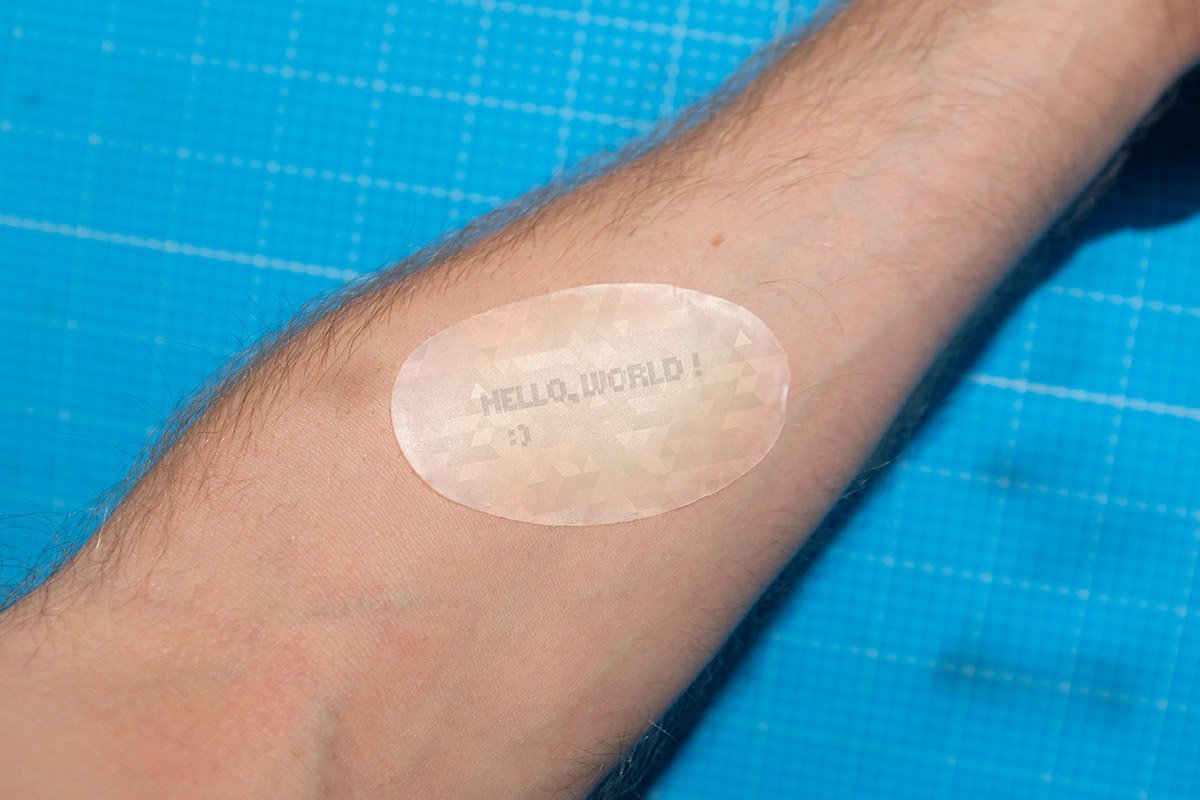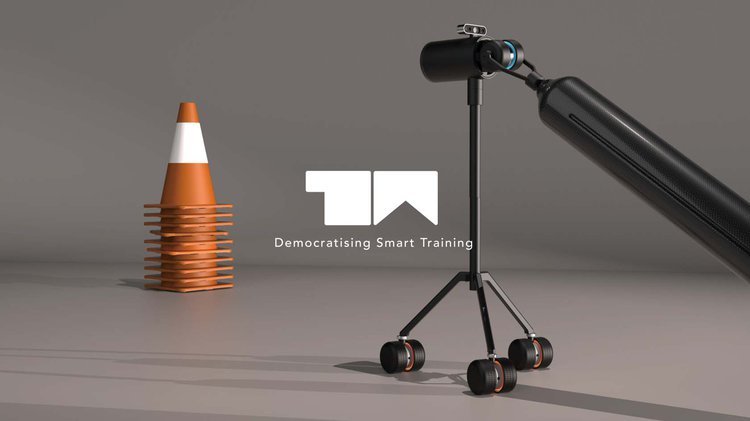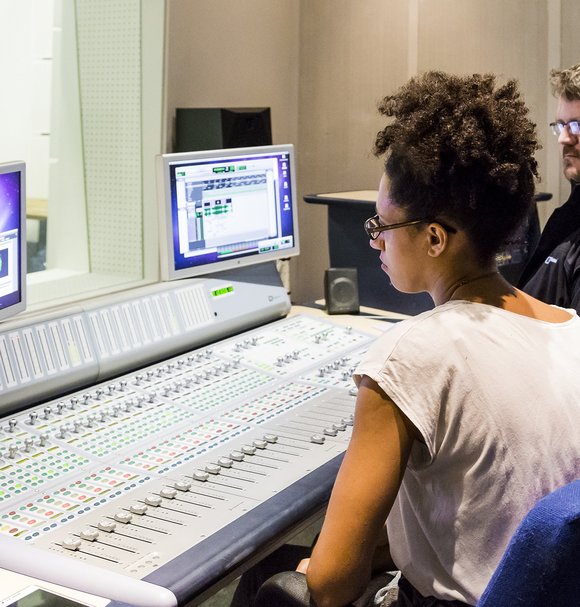
Key details
Date
- 21 October 2021
Author
- RCA
Read time
- 5 minutes
The latest start-ups to join our InnovationRCA incubation programme for 2021 are using design thinking in unexpected ways to solve real-world problems around sustainability and crime as well as creating fruitful disruptions in industries like construction, gaming, sports and computing.
Key details
Date
- 21 October 2021
Author
- RCA
Read time
- 5 minutes
The latest start-ups to join our InnovationRCA incubation programme for 2021 are using design thinking in unexpected ways to solve real-world problems around sustainability and crime as well as creating fruitful disruptions in industries like construction, gaming, sports and computing.
CipherX Technologies from Ferdinand Kohle (MA/MSc Innovation Design Engineering, 2021)

Approximately 1 in 3 UK citizens has a tattoo, 90% of whom are planning their next one. Despite this the technology used to apply tattoos has not evolved much since beginning thousands of years ago. Besides the pain, tattooing presents a risk of tissue scarring and blood borne diseases. CipherX Technologies, founded by our 2021 MA/MSc Innovation Design Engineering graduate, Ferdinand Kohle, is developing a technology to imprint permanent tattoos onto skin using skin patches. These patches can be designed and purchased online, and easily applied at home - making tattoos more accessible to everyone. The technology is pain-free, meets strict hygienic standards, and avoids the risk for tissue scarring.
Episod Studio from Sindi Breshani and Juliette Coquet (MA Information Experience Design, 2020)

Storytelling is becoming an increasingly important area of growth within the videogames industry with more and more companies moving into that space including Netflix who are committed to introducing interactive storytelling on their platform. A particularly notable area of growth comes in the crossover between video game and documentary type formats. Episod Studio was founded by Sindi Breshani and Juliette Coquet, who both graduated from our MA Information Experience Design in 2020. They develop interactive entertainment content and thought-provoking digital games that tell stories by letting the player become an active participant in digital worlds, impacting upon events inside the game. The studio’s distinctive content allows it to target audiences interested in political and dystopian niches, present in both the documentary and video games industry. Having secured support from the UK Games Fund, the studio is developing Race for the Arctic, a videogame traversing the coming half a century in the Arctic. Future games planned include Propaganda, a board game about post-truth propaganda, and Diktatura, a video game based on the Albanian dictatorship.
Mykkö from Aurélie Fontan (MA Fashion, 2021)

Aurélie Fontan is a 2021 graduate of our MA Fashion. Her bio-fabric Mykkö is a regenerative and circular plant-based leather alternative made with living fungal mycelium that is engineered to be fully renewable, carbon neutral and biodegradable. Mykkö harnesses the natural properties of UK-based fungi species to create luxury textiles that are 100% plastic-free, grown onto organic waste, and produced with low water and energy inputs. Founded alongside material specialist Ashley Granter, Aurélie Fontan studios were the winners of the 2020 Mayor’s Entrepreneur Award in the Creative Industries category and have also won support from InnovateUK. Mykkö’s research and development is targeted at developing textiles without the need for synthetic polymers of any kind to support its mechanical properties. The process makes use of highly renewable natural materials, such as green waste from agriculture, and replicable organisms, such as mycelium, with foraging methods that have absolutely no negative effects on the ecosystem.
Mykor from Valentina Dipetro (MA Textiles, 2019)

In the UK, construction contributes 25 million tonnes of waste to landfill each year. Worldwide, the construction industry contributes to 50% of all climate change, 40% of drinking water pollution, 23% of air pollution and 50% of landfill waste. Though construction must comply with environmental regulations, the sustainable building products currently on the market do not perform as well as oil-based counterparts. Mykor, founded by our 2019 MA Textiles graduate Valentina Dipietro, was set up to provide sustainable solutions to the construction industry. They are developing a high-performing insulation solution starting with locally-sourced forestry waste and fungi. In initial tests, their custom-engineered material is highly performative, carbon-negative, and feels and functions like conventional foam. It also offers high strength, density, sound absorption and fire-retardancy.
Racoon Industries from Diggory Rush (MA/MSc Innovation Design Engineering, 2021)

Motorcycle theft is so widespread in the UK that more bikes were stolen than registered in 2020. Raccoon industries is developing lightweight anti-theft motorbike and bike products in response to the evolving tools used by thieves to attack and steal motorcycles. Thieves have recently benefited from the 98% reduction in Lithium-ion battery costs which has made battery-powered angle grinders an effective option. Raccoon Industries' novel patent-pending material can effectively stop both bolt croppers and angle grinders. It even has the ability to shatter angle grinder discs. Weighing only 40% of a steel equivalent, their material provides a higher level of protection than anything currently available. With many current products relying on bulk and heaviness, Raccoon Industries are offering a lightweight alternative that can provide a higher level of protection and effectively deter thieves.
Stringboard Technologies from Ning Loh (MA Architecture, 2021)

Stringboard Technologies is developing The Stringboard (丝盘), a new gesture-based input system for the Chinese language, that helps learners and speakers gain calligraphic confidence. With over 50,000 unique characters, the Chinese language is not meant to be typed. The most common method for word processing involves typing ‘pinyin’, the phonetic romanisation of characters, on a QWERTY keyboard and selecting the correct character from a list of options (for example, ‘Ni Hao’ is typed to get ‘你 好’). And other methods like voice dictation are inaccurate. The problem is so great that native speakers are forgetting how to write their own language. The earliest typewriters, which evolved into modern keyboards, were inspired by piano keys. This led Springboard founder, Ning Loh, to ask why don’t we use strings instead? The Stringboard interface is based on the guqin, an ancient Chinese stringed instrument. A patent-pending system, it consists of a set of virtual ‘strings’ on a touch-sensitive surface. Each of the fundamental strokes in Chinese calligraphy is assigned a string and gesture direction (up/down/left/right). To enter a stroke, the user either ‘plucks’ or ‘slides’ across a string.
Tact Monster from Yifu Liu and Alice Müller (MA/MSc Innovation Design Engineering, 2021)

Tact Monster is a sports-technology robotics company developing on-court robots to make professional-level basketball training more accessible. Over 500 million basketball hobbyists working to improve their playing skills currently use inanimate tools. The absence of reactive opponents or feedback limits the benefits of such methods significantly. Founded by Yifu Liu and Alice Müller who both graduated from our MA/MSc Innovation Design Engineering in 2021,Tact Monster is developing a basketball robot that simulates complex training scenarios. The system provides an embodied training experience by also syncing with training plans and courses so that players (and trainers) can seamlessly curate open-sourced content or other training plans with the Tact Monster robot to simulate defensive scenarios, for use in drills such as shooting and dribbling. Dynamic data feedback gamifies the user experience, allowing users to compete worldwide remotely.
Yuck Yuck Bye Bye from Jeremy Hulse (MA/MSc Innovation Design Engineering, 2021)

Only 20% of UK household food waste is currently recycled, meaning that councils are forced to pay out for incineration and landfill. Yuck Yuck Bye Bye aims to make food waste collection more convenient and hygienic by eliminating the ‘yuck’ factor – the most common reason for non-participation in food waste collection or recycling schemes. The company is developing a low-cost dehydration system aimed at limiting microbial decay in rubbish. It was primarily developed for people living in flatted households and is designed to help councils save money as well as increase the possibility of recycling in dense urban areas. The project was the winner of the EIDD-Design for All Europe Award for Social impact at the Helen Hamlyn Design Awards 2021.
